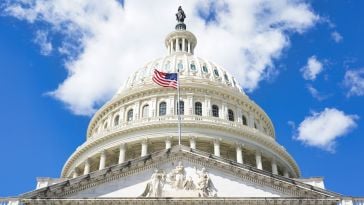Sort By
Most Recent
124 Articles
Humanoid robots are about to level up with “AI brains” — AI systems powered by advanced models that can learn to adapt to new situations. They’re still a work in progress, but they could sing that the skilled trades aren’t so AI-proof after all.
A growing number of states want to temporarily halt the construction of new data centers to address mounting energy and cost concerns. The effort aims to protect communities, but it could also test the sustainability of the AI industry’s breakneck growth.
Nvidia initially made its name developing chips for video games, but its influence has grown far more powerful since the AI industry adopted its chips. Here’s how it has changed the tech sector, and how it’s driving the next wave of AI innovation.
A new benchmark developed by Mercor researchers revealed that AI agents aren’t ready to take over “knowledge work.” But recent advancements suggest that a future where agentic AI reshapes the workplace is just beyond the horizon.
Artificial intelligence will be front and center in this year’s midterms — and likely many more elections to come. From disrupting traditional party lines to contributing to misinformation, AI could reshape the very nature of American politics.
Anthropic is flexing its new and improved Claude Code, which used vibe coding to build the company’s latest tool, Cowork. The feat has inspired both excitement and angst within the tech world as the future of work continues to grow more uncertain.
Elon Musk announced that SpaceX has acquired xAI, evidently to fulfill his dream of launching data centers in space. The move could completely transform the artificial intelligence industry — or send Musk’s tech empire crashing back down to Earth.
America’s AI industry has thrived under Trump’s second term, thanks to his AI Action Plan that reduces regulations, increases infrastructure and prioritizes American AI exports. But this progress could be met with pushback in 2026.
Nvidia is turning heads with Alpamayo, its latest model that equips autonomous vehicles with advanced reasoning capabilities. The announcement could officially usher in the era of physical AI — and signal Nvidia is taking on a larger role in the AI race.
After a year of massive spending and mounting backlash, the AI industry should ring in the new year by resolving to curb energy use, invest strategically, develop smarter devices and strengthen its political influence.
A pair of former U.S. Representatives launched two new super PACs to support candidates who want stronger AI regulations, setting up a bitter face-off with pro-AI groups over the direction of U.S. AI policy in the 2026 midterms and beyond.
DeepSeek’s arrival, Meta’s unprecedented AI hiring spree and TikTok’s legal conundrum are just a few highlights from a hectic year for the tech industry. And the stakes are set to rise even higher in 2026.












